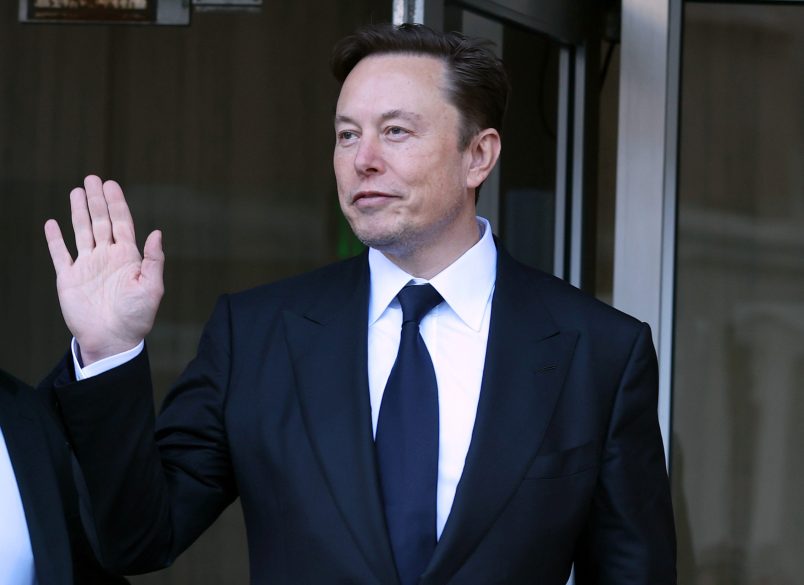Twitter got hit with a $350,000 fine earlier this year after refusing to comply with a search warrant for former President Trump’s Twitter account that Jack Smith’s office obtained.
The new information — which reveals the existence of the January 2023 search warrant for Trump’s Twitter account and the legal battle which ensued — was made public through a ruling published on Wednesday by the U.S. Court of Appeals for the D.C. Circuit.
Twitter had sought in the ruling to overturn a lower court finding which held it in contempt for not complying with the search warrant for 51 hours, and the ensuing $350,000 fine. A three judge panel, composed of Appeals Judges Florence Pan, Cornelia Pillard, and J. Michelle Childs, all Democratic appointees, ruled against Twitter on July 18.
The case offers a sliver of a glimpse into Special Counsel Jack Smith’s investigation, and of the bizarre lengths to which Twitter, owned by billionaire Elon Musk throughout the course of the dispute, went to fight the warrant.
Per the appellate ruling, Smith obtained a search warrant for “data and records” relating to Trump’s Twitter account on Jan. 17. After finding that the company’s legal website initially didn’t work, and that the company’s counsel “had not heard anything” about the warrant, Smith was able to serve the company with the warrant.
From there, Twitter resisted the warrant.
First, it objected not to the warrant itself but to a separate order commanding the company not to disclose the existence of the search to Trump or anyone else. Twitter argued to U.S. District Judge Beryl Howell for the District of Columbia, then chief judge of the court, that it should not have to respond to the warrant until it got a court order clarifying whether it could tell Trump about the warrant.
Federal law enforcement regularly obtains search warrants from various companies for information about their users without the users being informed. Twitter, the ruling said, even adopted one of Trump’s favorite bogus arguments for why it had to delay: that complying would stop Trump from asserting executive privilege over communications in the account.
Judge Howell purportedly rejected those arguments, saying that Twitter was obligated to abide by the subpoena even as she decided whether the company would be allowed to tell Trump. (She ultimately decided that it was not allowed to.)
Throughout all this, federal prosecutors asked Judge Howell for a hearing where Twitter would have to explain why it shouldn’t be sanctioned for blowing off the warrant. The hearing took place on Feb. 7, the appeals opinion stated. If Twitter didn’t comply by 5:00 p.m. that evening, it would face punishment suggested by the government: $50,000 fines per day, doubling each day of noncompliance.
“The court adopted that suggestion, noting that Twitter was sold for over $40 billion and that its owner’s net worth was over $180 billion,” the ruling reads.”
After three more days of failing to comply, including more litigation over what records the warrant meant to secure, Twitter produced the records. That landed it with $350,000 in fines.
The opinion is very light on information about Smith’s investigation, apart from noting that Judge Howell found probable cause that evidence of a crime existed in Trump’s Twitter account. JP Cooney, a prosecutor reportedly overseeing the campaign finance prong of Smith’s investigation, helped argue the case — potentially a clue about what prosecutors were searching for via the warrant.
Musk himself has yet to comment on the legal battle. At the time that it took place, a review of his Twitter account shows, he kept up his usual patter of right-wing talking points suggesting government overreach into matters of free speech.







thread
I gotta boogie, but two things:
mErrIcK tHe mEEk and the symbol of Garland haters.
When thinking about Trump, DeSantis, Musk, and all their ilk, it is wise to consider:
"So the fool, as distinct from the scoundrel, is completely self-satisfied; in fact, he can easily become dangerous, as it does not take much to make him aggressive. A fool must therefore be treated more cautiously than a scoundrel." – Dietrich Bonhoeffer
Well golly gee, I wonder why our Elon has become so much more rapidly enamored of the Reich Wing who obey their version of the Golden Rule (ask if you don’t happen to know kiddies!).
Since Prince Elon makes people log in, here’s the whole mess of the thread from another source: https://threadreaderapp.com/thread/1689317800714682368.html